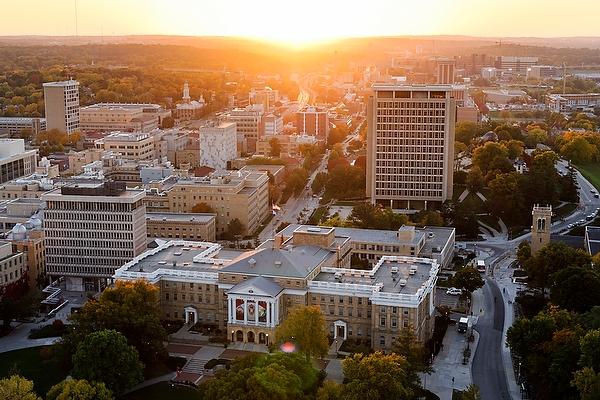This isn’t a new issue, but it’s time people start paying attention to it.
Numerous occurrences of hate, including the swastika incident in Sellery to war chants at an event to promote healing for Native American sexual assault survivors, have marked this spring semester. One of the most recent incidents involved a First Wave scholar who was subjected to racist and sexist words, and then spit on.
#TheRealUW: Students tell stories of racial bias, UW ‘not doing enough’
Unfortunately, instances like these are not uncommon at the University of Wisconsin. This week, many students took to social media to talk about their experiences as minorities on campus using #TheRealUW hashtag. The magnitude of the hashtag reflects the urgency and necessity of making campus more inclusive.
In a November interview with The Badger Herald Editorial Board, Multicultural Student Center Director and Assistant Dean of Students Joshua Johnson said many people often construe hate incidents as “not real issues.” In reality, these incidents have lasting effects that contribute to systems of hate and bias, he said.
With black students making up 2 percent of the undergraduate student body, Hispanics/Latinos about 4.6 percent, Asians nearly 5.5 percent and Native Americans .002 percent, it is easy for the predominantly white campus to not take accountability and sweep hate and bias incidents under the rug.
Often after a hate incident, the university hosts forums and and tries to start conversations to facilitate dialogue. But since these incidents do not affect the majority of white students, many choose not to attend, and these dialogues cannot even begin. These forums and conversations should be happening, but UW needs to work harder to ensure majority students are listening to what their minority peers are experiencing on campus.
These forums and conversations help give students the skills and confidence to be active bystanders, and those initial interventions will trickle out into the larger UW community, Johnson said.
Students of color shouldn’t just be advocating for themselves, Johnson said, and all students must challenge themselves to continuously learn about diversity and injustice.
In addition to continuing to facilitate these conversations, UW administration needs to take concrete measures to make the campus more inclusive. This means increasing resources for the MSC, putting a genuine effort into recruiting a more diverse student body and offering more need-based scholarships.
So far this year, the university has not taken any of these steps. In fact, it has done the opposite. Lifting the enrollment cap for out-of-state students and increasing out-of-state tuition will further expand the socioeconomic divide on campus, compounding these issues. MSC is no longer seeking funding from student government, and greater priority and greater university resources need to be allocated to the organization, which works to ensure a better campus climate for minority students.
Out-of-state student enrollment cap removal will transform UW into bougie playground
On top of that, the university is looking to move toward increasing merit-based aid — a move that strictly targets upper-class prospective students, systematically excludes underrepresented minorities and takes money away from those who truly need it.
It is time for administrators to not just listen, but to act. It is time for the white majority to start paying attention to the everyday struggles of their peers instead of letting the problems get lost in the shadow of the privileged masses.














